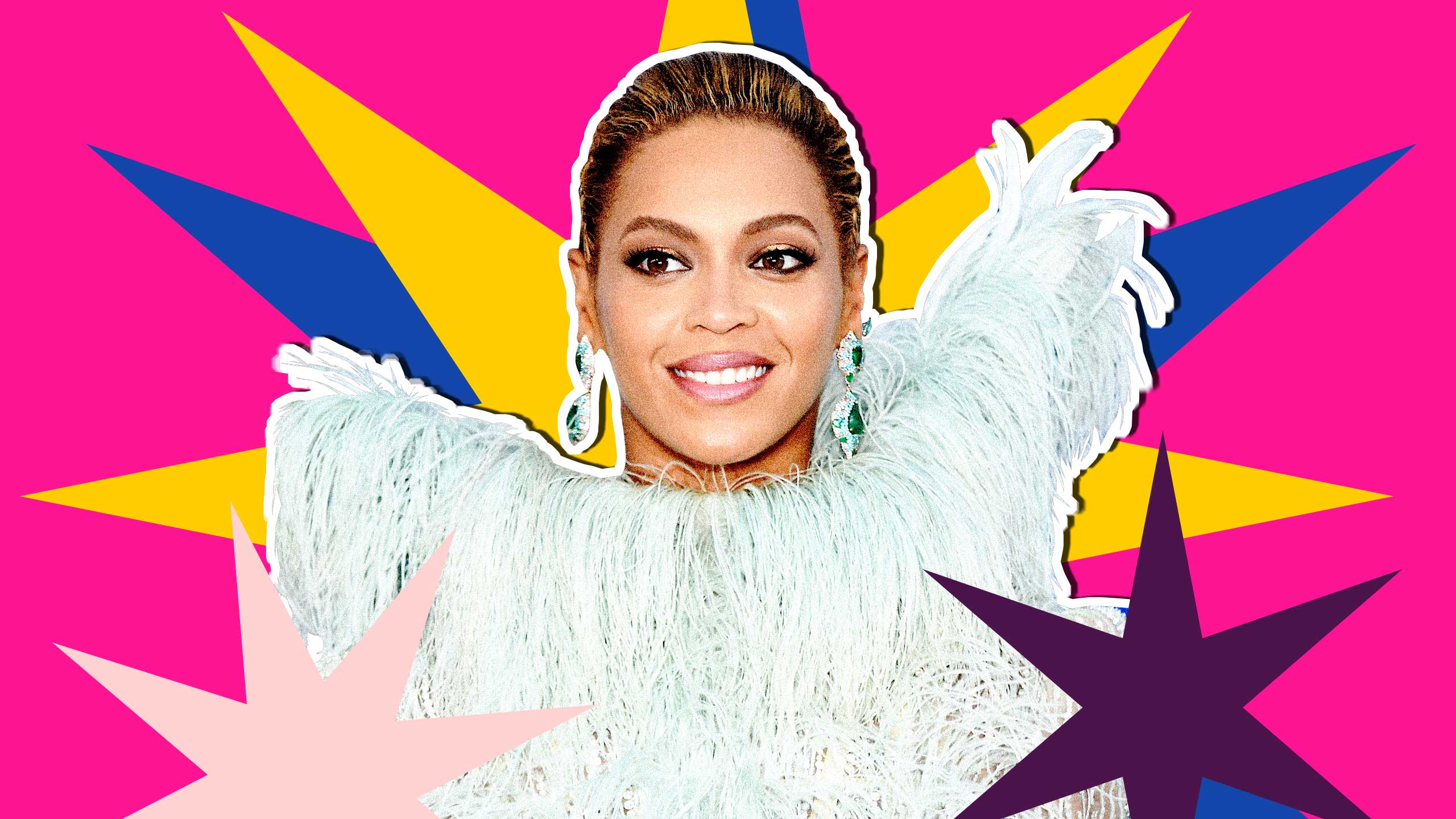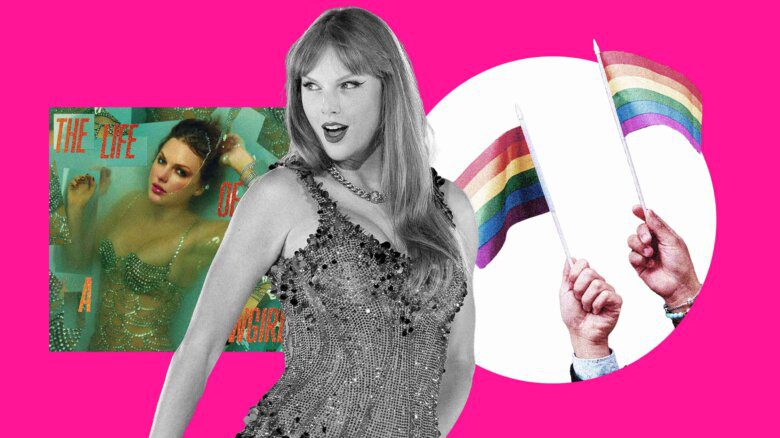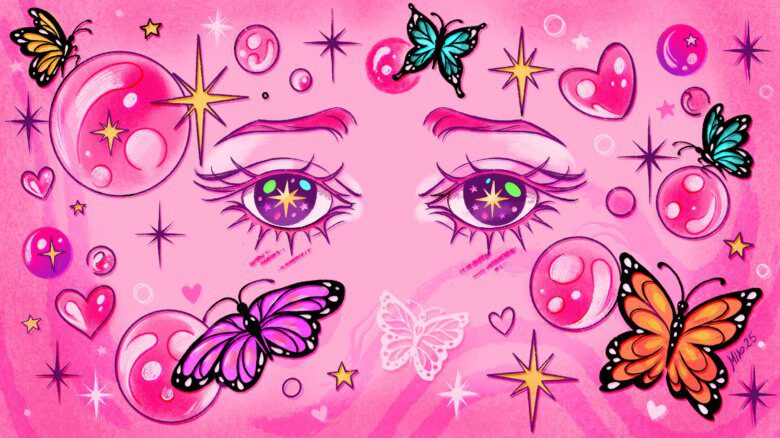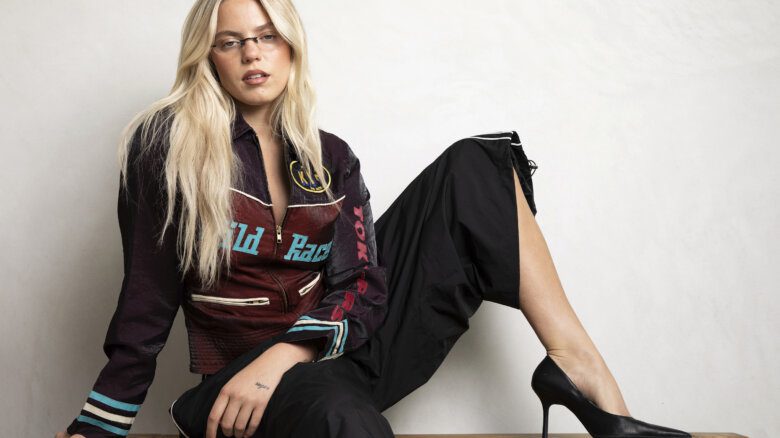When you look at the cover for Destiny’s Child’s first single “No, No, No,” released in November 1997, the group looks like every other girl group from the late 1990s/early 2000s. The lead singer, Beyoncé Giselle Knowles, is just one of the girls. She’s not featured more prominently than the others, and there’s nothing about her that particularly stands out. In 1997, you’d never be able to guess that girl would become a 28-time Grammy Award-winner and one of the most successful and influential artists of the last 100 years.
Destiny’s Child would go on to have nine more top-10 hits (and almost as many lineup changes), each more iconic than the last. By 2001’s “Bootylicious,” Beyoncé wasn’t just one of the girls anymore—she was the runaway star. Beyoncé’s destiny was sealed in 2003 when she released her first solo number one, the smash hit “Crazy in Love.”
What followed “Crazy in Love” is almost impossible to summarize, but from that moment until now, Beyoncé’s career has been an endless stream of Grammys, sold-out world tours and multi-platinum albums. It’s safe to say that she is a bonafide legend.

Credit: Jimmi Francoeur/CBC; Brian Wong/Xtra
On the dawn of her 40th birthday, this is the perfect time to look back on the highs and lows of Beyoncé’s monolithic career and what it means to be a 40-year-old woman in pop today, given the music industry’s history of ageism and misogyny. Beyond the industry, is it even possible for someone over 40 to appeal to Gen Z? If anyone can do it, surely it’s Beyoncé.
Tranna: My earliest memory of Beyoncé is seeing her in the video for “Bills, Bills, Bills,” which I was obsessed with as a kid. You can see how it established Beyoncé’s brand of empowered female independence so early on. The attitude and energy she’s serving in the video is really consistent with what Beyoncé is still serving today, though on a much bigger platform. From the very beginning, Beyoncé’s branding was so strong. While none of us could have guessed what she would go on to achieve at the time, watching that video now, you can tell Beyoncé—and her dad, Matthew Knowles, the mastermind behind Destiny’s Child—knew. There’s such a powerful confidence emanating from her. “Bills, Bills, Bills” also introduced us to the sublimely hideous fashion styling of Tina Knowles, mother of Beyoncé and the House of Deréon. I can seriously never get enough of the looks DC served from 1997 to 2004—they were so whacky, over-the-top and so of their time. Destiny’s Child really was the moment.
Thomas: I really hope Tina Knowles’ designs get a museum retrospective one day, but that’s a subject for another column. Now, about Destiny’s Child: I wish I had been more prescient during their rise, but I was neutral to them at best. I was a fan of ’90s girl groups like the Spice Girls and TLC, but I’ll admit that I didn’t initially buy what Destiny’s Child was selling. That all changed during my last year of high school, when the girls questioned our collective ability to handle Beyoncé, Kelly and Michelle on 2001’s “Bootylicious.” To this day, it’s still my favourite Destiny’s Child song; every time that Stevie Nicks bassline kicks in, I close my eyes and remember dancing on a table at a school dance.
The world was never the same again after Beyoncé went solo in 2003. It’s baffling to think she was only 21 when “Crazy in Love” came out. She already seemed so confident and in-control, especially to those of us who were younger than her.
Tranna: I can’t believe I never realized Beyoncé was 21 when that came out? I am seriously stunned!
Thomas: Even though the song was released at the height of the very heteronormative early 2000s, it became a rallying cry for a generation of queer kids because Beyoncé was clearly making music for girls and their friends. Yes, she was “hot,” but she wasn’t as objectified for the male gaze as Britney, Christina or even Aaliyah. And she was singing about being Bonnie to Jay-Z’s Clyde, so that probably killed the fantasy for a lot of straight men. For gay kids, though, “Crazy in Love” launched a million drag careers! The song and music video are timeless, with the old-school horns, the hair extension flipping in the wind and Beyoncé catwalking in front of a giant fan.
Tranna: I think one of the most iconic moments in her career was the 2016 Super Bowl performance.
Thomas: I’ll let you finish… but, uh, her 2013 halftime show was the best half-time show of ALL TIME!
Tranna: I think that honour belongs to J.Lo and Shakira, but I digress! In 2016, Beyoncé (rightfully) stole the show from Coldplay, who were the headliners that year (I don’t understand why the Super Bowl ever chooses boring white guys to do the halftime show), performing “Formation,” the lead single from her masterpiece album, Lemonade. Her dancers were wearing berets that were a nod to the ones worn by the Black Panthers. January 2016, when the performance took place, was a critical, fraught and intense time politically and socially. It was a few months after the third wave of the Ferguson Uprising and presidential candidate Donald T***p was campaigning under the MAGA banner, galvanizing white supremacists across the country. Beyoncé’s performance was an incredibly powerful ode to Black power and a call to support Black Lives Matter. I think it showed an entirely new facet of who Beyoncé is, and that she is so much more than just a pop star. I think Beyoncé has made a conscious and important point of using her work to celebrate Black excellence, like when she chose Tyler Mitchell to photograph her September 2016 Vogue cover, making him the first Black photographer to shoot the cover of the magazine (it’s deeply alarming that it took that long).
Thomas: We can probably trace that political shift to the “visual album,” her eponymous oeuvre that unexpectedly dropped online in December 2013.
Tranna: That moment changed the industry and the way artists could release music. She invented the “surprise” album drop. Everyone does it now.
Thomas: The album marked her return after giving birth to her first daughter, Blue Ivy, and it featured the track “Flawless,” which famously sampled writer Chimamanda Ngozi Adichie’s TED Talk “We Should All Be Feminists.” Building on the success of her 2011 girl power anthem “Run the World,” Beyoncé astutely embraced the “feminist” label at just the right time. The way she blended commerce and political commentary set the stage for the female artists of colour that would follow (Lizzo, Cardi B, Doja Cat and Rina Sawayama) and, in a way, she borrowed a page from the Madonna playbook of sex and empowerment. Beyoncé paved the way for our era and the ways we perform self-acceptance and body positivity through art and social media: you gotta love yourself and create content about it! Even though she is wealthy and beautiful, we believe her when she sings “Pretty Hurts.”
“I’ve never really felt an emotional connection to Beyoncé. I think she is almost too perfect.”
Tranna: I’m not so sure I believe her. I have a hard time feeling the pain of someone whose net worth is estimated at USD$40 million. Beyoncé has done so much in her career and there’s no way we can cover everything—it’s ridiculous how prolific she is (that’s a Virgo for you!). But I have to say that, for me, her ultimate masterpiece is the 2019 concert film/documentary, Homecoming. First, I have a confession to make: I’m not really a big Beyoncé fan. Please, hold your fire! I don’t dislike her in any capacity. I love her hits. I have so much respect for her work. But I’ve never really felt an emotional connection to Beyoncé, which is something I need to feel in order to be a fan of a musical artist. I think Beyoncé is almost too perfect. She is objectively a phenomenal talent. Everything she does is so meticulous and immaculate, but it’s to the point where it’s almost mechanical. And, no shade, but personality-wise Beyoncé is pretty boring. I don’t think she’s ever cracked a joke publicly. And maybe that’s just because she’s extremely guarded?
Thomas: Her moon is in Scorpio, after all. That probably explains why she hasn’t given an interview in years.
Tranna: For someone as mega famous as she is, she’s managed to remain extremely private. With the exception of the Met Gala elevator incident with Jay-Z and her sister, Solange (who I love and am actually a much bigger fan of), she’s never allowed her personal life to become a tabloid spectacle and I really respect that. I respect how dignified she is in an industry that can be so undignified. But, again, she can be so boring! And maybe another reason why she’s boring is that she works so damn hard all the time, and that’s what I witnessed in Homecoming. The rehearsal footage is incredible. The level of excellence that all the performers in the show are being called to is a level I know I could never reach. And the 2018 Coachella concert itself (the subject of the film) is truly one of the most innovative, stunning live shows I’ve ever seen. That show is so full of life and emotion—it proves that she is one of the greatest performers of all time. As celebrated as the concert is, it’s still not praised enough. It can never be praised enough! It’s a legendary performance.
Thomas: It’s fascinating to see someone who probably set her sight on becoming one of the greats from an early age deliver on that ambition. What a childhood she must have had; I wonder if we’ll ever know what it was like to grow up under Matthew and Tina Knowles’ roof in the ’80s and early ’90s. Clearly, her talent and drive were there from the beginning, but her parents provided the right environment for her to develop this incredible, yet somewhat sociopathic, work ethic. While she was surrounded by adults during her teens, she always kept that little girl from Houston’s dream alive. Circling back to “Flawless,” the music video featured footage of a tween Beyoncé and her then group Girls Tyme losing the singing competition Star Search. I’m sure that little Beyoncé still lives inside of her. And even though our experiences couldn’t be more different, I find her awe-inspiring in the way that she has nurtured her inner child’s dream over time.
Tranna: In a few days (on Sep. 4), Beyoncé is turning 40. A new generation of pop queens is entering their 40s: Christina Aguilera turned 40 last year, Britney Spears is turning 40 in December. This is the generation we grew up watching, and I can’t believe they’re all turning 40! I remember being a kid and hearing the media go on and on about how, in 1998, Madonna was turning 40. Everyone thought it was going to be the end of her career because, up until then, so few female artists were able to remain mainstream-relevant into their 40s—not because the work wasn’t great but because radio would stop playing them. Madonna surprised everyone and released her masterpiece album, 1998’s Ray of Light, which redefined what it meant to be a pop star in your 40s. That same year, with her song “Believe,” Cher would become (and remain) the only woman over 50 to have a number one hit. Madonna even reached a new career high in 2005, at 47 years old, with “Hung Up,” which reached number one in a record-breaking 41 countries. One of the few places it didn’t reach number one was the United States. Only six women in the history of the Billboard Hot 100 have had number one hits. (Mariah Carey getting “All I Want For Christmas” to number one in 2019 does not count—she was in her twenties when the song was released in 1994.)
“The last time J.Lo cracked the top 10 was 10 years ago.”
The erasure of women over 40 in pop is disturbing to me. You know I love my divas, and so many of them do their best work in their 40s—it’s infuriating that those projects are not given the attention they deserve. Radio simply doesn’t play women over 40. When you look at the discography pages of all the divas, as I am wont to do, you can see that after they turn 40, their chart positions and sales drop. But what’s interesting now is that radio has lost a lot of its power: radio play no longer dictates a song’s popularity. Now, it’s TikTok; it’s the age of streaming, and we can listen to women over 40 as much as we want. But I don’t think that’s changed the inherent ageism in our culture. Granted the song sucked, but no one cared about Gwen Stefani’s last single. Céline Dion’s last album, which was actually decent, came and went. And the last time J.Lo cracked the top 10 was 10 years ago. There just seems to be this insurmountable disinterest in 40+ female pop stars that reflects our culture’s deep seated misogyny. Only the gays are still listening. How do you think Beyoncé will navigate the next decade of her career? Do you think that she’ll be able to reinvent what it means to be a pop star at 40? I can’t imagine a world where the kids are no longer interested in Beyoncé.
Thomas: Because she is not willing to share every detail of her life, I can only assume that Beyoncé drifting out of relevance for younger folks will come sooner than you think. Beyoncé is an icon for millenials, and while Gen Z grew up with her, I don’t know that they have the same appreciation for her as our cohort has. It’s interesting that you mention radio, because Beyoncé has really thrived artistically when she stopped making music geared for radio; after all, except for 2016’s “Formation,” her most recent solo top-10 hit was “Sweet Dreams,” from 2009’s I am… Sasha Fierce. My point is that charts only show part of the story; as an artist, she did her best work in her 30s, and I’m excited to hear what she does next. But you are right that there is a risk of people stopping to pay attention to her new music after she turns 40—but if one person can keep captivating audiences, it’s her.
Tranna: I think she needs to bring back Sasha Fierce!
Thomas: Beyoncé has also been a consistent LGBTQ2S+ ally, especially in the last decade. It’s true that we don’t necessarily think of her as being as outspoken for gay and trans rights as Lady Gaga, but she has uplifted many queer voices over the years, including Janet Mock, Laverne Cox and that cute gay couple in the “All Night” music video.
Her strength is that relentless drive to push herself forward. But at 40, I hope she understands that she has given us more than we could ever hope for. We bow down to you, Queen Bey.
Montreal-based comedians Thomas Leblanc and Tranna Wintour’s podcast Chosen Family streams on CBC, Apple and Google; new episodes drop every other Thursday.



 Why you can trust Xtra
Why you can trust Xtra


